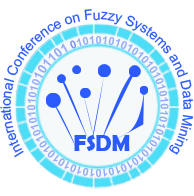Invited Speaker

Dr. Salem S. Humaidan
Department of Information Science, King Abdulaziz University, Saudi ArabiaSpeech Title: Artificial Intelligence: Its Potential Risks upon Jobs From a Knowledge Based Perspective
Abstract: Although Artificial Intelligence (AI) has significantly reshaped the present and the future of our lives in many ways. There are worthwhile risks regarding the potential impact of AI on different aspects. This study focused on the risks facing current jobs in different sectors. The analysis of potential risks relied on the nature of job activities in terms of repetition, routine, non-routine, complexity and creativity, in light of the dimensions of tacit knowledge, according to the tripartite model of tacit knowledge notion: intellectual abilities, physical skills, and the emotional aspect of attitudes and morals. Structured interviews were the main method for gathering primary data. Data on 20 selected jobs were reviewed and summarized and presented to a group of academic experts and practitioners in multiple disciplines (Delphi method) to figure out the magnitude of the impact of potential risks from the inclusion of artificial intelligence upon jobs.The study resulted in four types of effected jobs, ranging from jobs with a complete displacement of workforces to save jobs in the near and long term.
Keywords: Artificial Intelligence, Knowledge Management
Biography: Dr. Salem Humaidan received his master degree in business administration from Faculty of Economics and Administration at King Abdulaziz University in 2010 and awarded Ph.D. in knowledge management from Faculty of Arts and Humanities at King Abdulaziz University in Jeddah, Saudi Arabia. He has been associated with different parties as an independent business improvement consultant in Saudi Arabia. He has been invited and participates in many conferences at Egypt, Jordon, Philippines Italy, Czech Republic, and Spain. He has published several scientific papers in journals and conferences.
Research Interests: knowledge management, risk management, organizational culture, and change management
